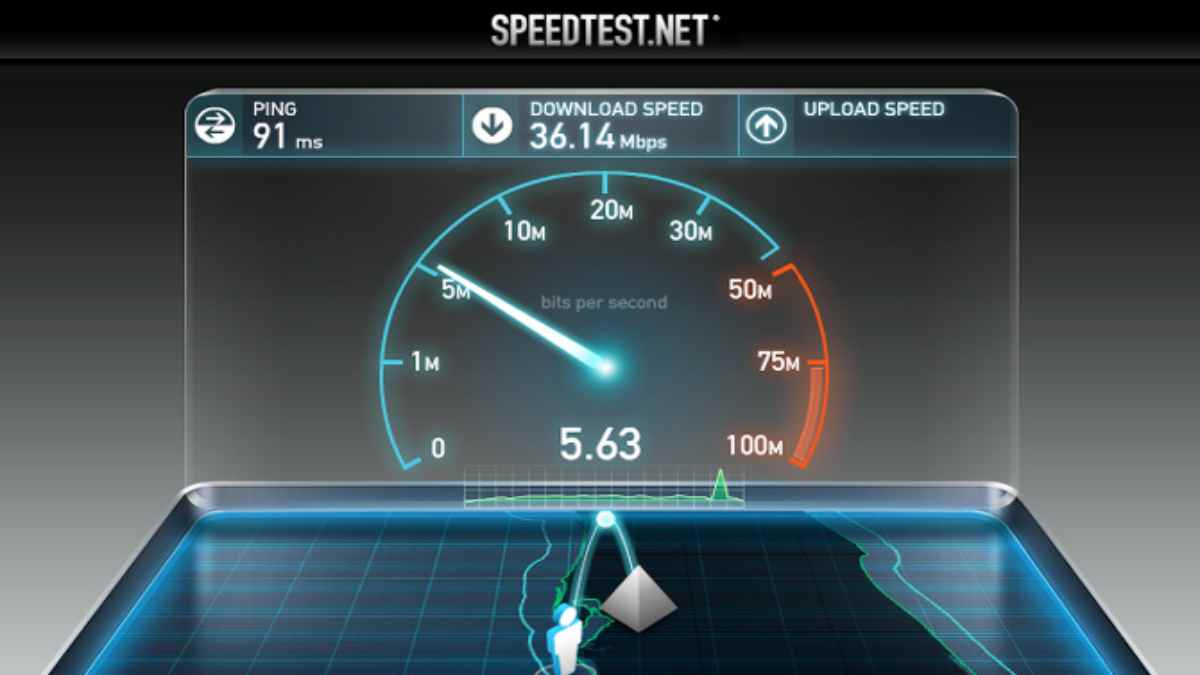In today's digital age, understanding what internet speed you need is crucial for ensuring a seamless online experience. With the increasing reliance on the internet for work, entertainment, and communication, selecting the right speed can significantly impact your daily activities. Whether you are streaming your favorite series, participating in video conferences, or simply browsing the web, knowing the appropriate internet speed is essential.
This article will explore various factors that influence your internet speed requirements, helping you make an informed decision. We will cover different internet activities, the recommended speeds for each, and how to test your current internet speed. Additionally, we will provide tips on how to optimize your internet connection to ensure you are getting the most out of your service.
Let’s dive into the world of internet speeds and discover how to choose the right speed for your needs.
Table of Contents
- Understanding Internet Speed
- Factors Affecting Internet Speed
- Recommended Speeds for Different Activities
- How to Test Your Internet Speed
- Optimizing Your Internet Connection
- Choosing the Right Internet Plan
- Common Misconceptions About Internet Speed
- Conclusion
Understanding Internet Speed
Internet speed refers to the rate at which data is transmitted between your device and the internet. It is typically measured in megabits per second (Mbps). The higher the Mbps, the faster your internet connection will be. For example, a speed of 100 Mbps means that you can download 100 megabits of data every second.
There are two main types of internet speed: download speed and upload speed. Download speed measures how quickly data can be pulled from the internet to your device, while upload speed measures how quickly you can send data from your device to the internet. Both speeds are important, depending on your internet usage.
Factors Affecting Internet Speed
Several factors can influence your internet speed, including:
- Type of Connection: Different types of internet connections (fiber optic, cable, DSL, satellite) offer varying speeds.
- Network Congestion: When multiple users are connected to the same network, speeds can slow down during peak usage times.
- Distance from Router: The farther you are from your Wi-Fi router, the weaker the signal and lower the speed.
- Device Limitations: Older devices may not support high-speed connections, affecting your overall experience.
Recommended Speeds for Different Activities
Understanding what internet speed you need varies based on your online activities. Here are some recommended speeds for common activities:
- Basic Browsing: 1-5 Mbps is generally sufficient for browsing websites and checking emails.
- Streaming Video:
- Standard Definition (SD): 3-4 Mbps
- High Definition (HD): 5-8 Mbps
- Ultra High Definition (4K): 25 Mbps or higher
- Online Gaming: 3-6 Mbps is typically enough for a smooth gaming experience.
- Video Conferencing: 1.5-3 Mbps for standard video calls, and 3-5 Mbps for HD video calls.
How to Test Your Internet Speed
To determine whether you are getting the speed you pay for, you can test your internet speed using various online tools. Here’s how:
- Disconnect other devices from your network to ensure an accurate reading.
- Visit a reputable speed test website such as Ookla's Speedtest or Fast.com.
- Click the "Go" button to initiate the test.
- Review the results, which will show your download and upload speeds.
Optimizing Your Internet Connection
To maximize your internet speed, consider the following tips:
- Use a Wired Connection: Connecting directly to your router with an Ethernet cable can provide faster speeds than Wi-Fi.
- Upgrade Your Router: If your router is outdated, consider upgrading to a newer model that supports higher speeds.
- Limit Background Applications: Close applications that may be using bandwidth in the background.
- Change Wi-Fi Channels: If you are in a crowded area, changing the channel on your router can reduce interference.
Choosing the Right Internet Plan
When selecting an internet plan, consider your household's needs:
- Number of Users: More users require higher speeds to maintain performance.
- Type of Activities: Assess the activities performed by each user to determine the needed speed.
- Budget: Compare different internet service providers to find a plan that fits your budget while meeting your speed needs.
Common Misconceptions About Internet Speed
There are several myths surrounding internet speed that can lead to confusion:
- Higher Speed Always Means Better Performance: Not necessarily; the overall quality of your connection also plays a role.
- All Devices Use the Same Speed: Different devices can handle different speeds, so performance may vary.
- Wi-Fi is Always Slower Than Wired: While wired connections are typically faster, modern Wi-Fi can provide impressive speeds.
Conclusion
In summary, understanding what internet speed you need is vital for optimizing your online experience. By evaluating your activities, testing your current speed, and taking steps to enhance your connection, you can ensure that you are getting the most out of your internet service. If you have any questions or experiences to share, feel free to leave a comment below, or explore our other articles for more insights!
Call to Action
Have you recently upgraded your internet speed? Share your experience in the comments! Don't forget to check out our other articles for more tips on internet usage and technology.
Thank you for reading, and we hope to see you again soon!
You Might Also Like
Best Food To Eat Before Workout: Fuel Your Fitness JourneyBicarbonate Of Soda: The Versatile Household Wonder
Exploring Poetic Devices: Enhancing The Beauty Of Poetry
Greek Yogurt For Dogs: Benefits, Risks, And Best Practices
The Alarming Rise Of US Obesity Rate: Understanding Causes And Solutions
Article Recommendations
- Mia Hamm Soccer Player
- Lava Stone Bracelet Essential Oil
- Mario Lopez
- Daryl Hannah
- Efficient Strategies_0.xml
- Lola Consuelos Weight Loss Ozempic
- Digital Revolution_0.xml
- Convert Excel To Html Table
- Balanced Lifestyle_0.xml
- Ruben Roman


